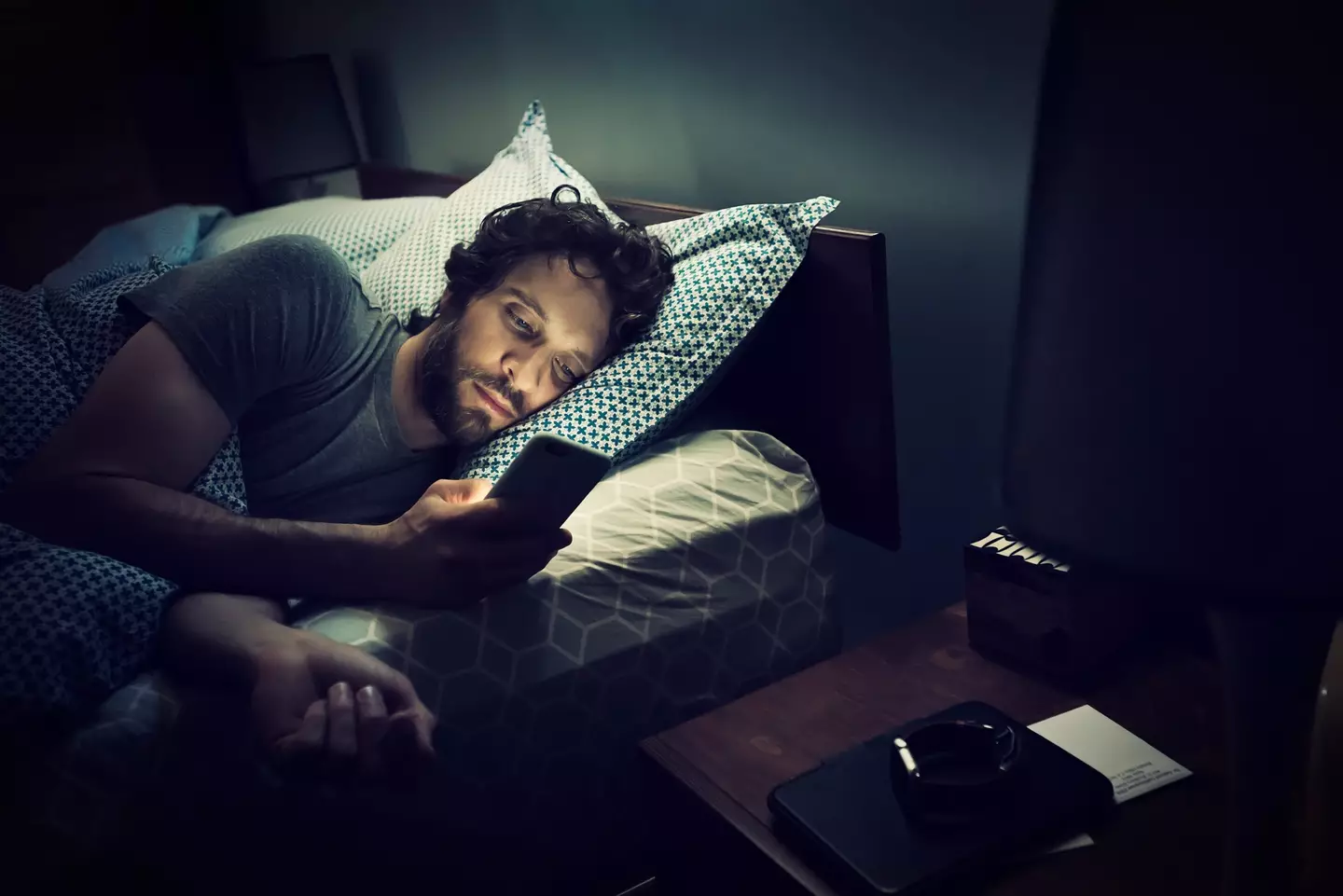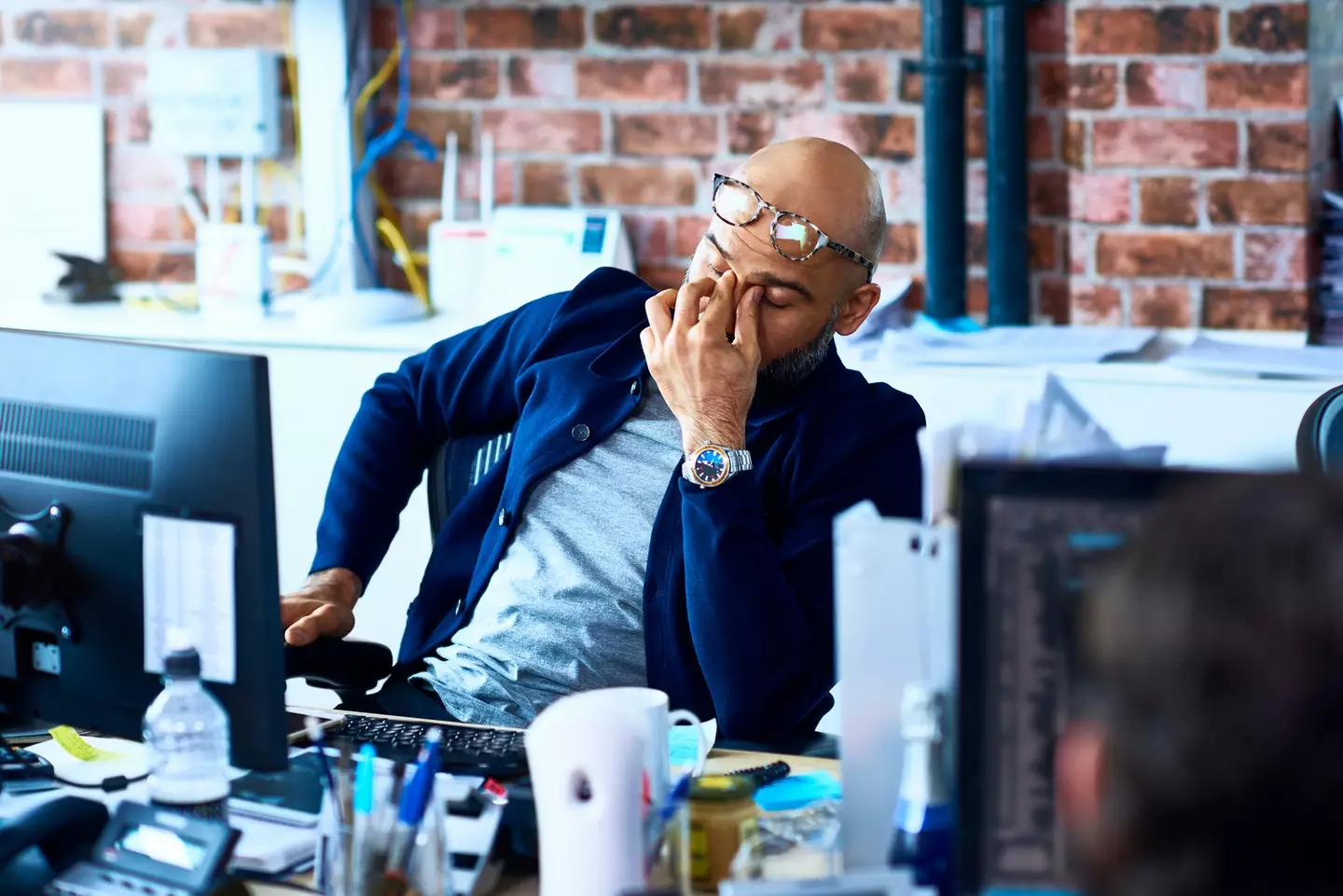
Experts are warning the public that smartphone use in bed raises the risk of a serious sleep disorder by a whopping 59%.
It turns out that this disorder is something that one in three adults struggle with, with around half of those impacted reporting that it affects how they function day-to-day.
And there is one habit that could be causing more people to end up with the sleep disorder.

Advert
That culprit is using your phone in bed before going to sleep.
This is according to a new study published in the journal Frontiers in Psychiatry, which found that spending an hour on your phone in bed can more than double your risk of insomnia.
It can also lower the amount of sleep you get each night by 24 minutes.
This comes from researchers from the Norwegian 2022 Student's Health and Wellbeing survey.
Over 45,000 people aged between 18 to 28 took part in the study where they were quizzed about their habits before bed.
It was found that those who used screens saw a disruption to their sleeping patterns.
Gunnhild Johnsen Hjetland, who is the lead author of the study from the Norwegian Institute of Public Health, said: “The type of screen activity does not appear to matter as much as the overall time spent using screens in bed.

“We found no significant differences between social media and other screen activities, suggesting that screen use itself is the key factor in sleep disruption - likely due to time displacement, where screen use delays sleep by taking up time that would otherwise be spent resting.”
So, if you’re someone who struggles to drift off to sleep at night, it might be worth leaving your phone for the morning.
And Hjetland has some tips on how to get back into a regular pattern of sleep.
The expert said: “If you struggle with sleep and suspect that screen time may be a factor, try to reduce screen use in bed, ideally stopping at least 30 to 60 minutes before sleep. If you do use screens, consider disabling notifications to minimize disruptions during the night.”
There are many health benefits to getting a full night’s sleep as studies have also relieved that people who are not getting enough sleep are more likely to exhibit symptoms of anxiety and depression.
It is recommended that a person should get around seven to nine hours of sleep each night in order for optimal brain function during the daytime.